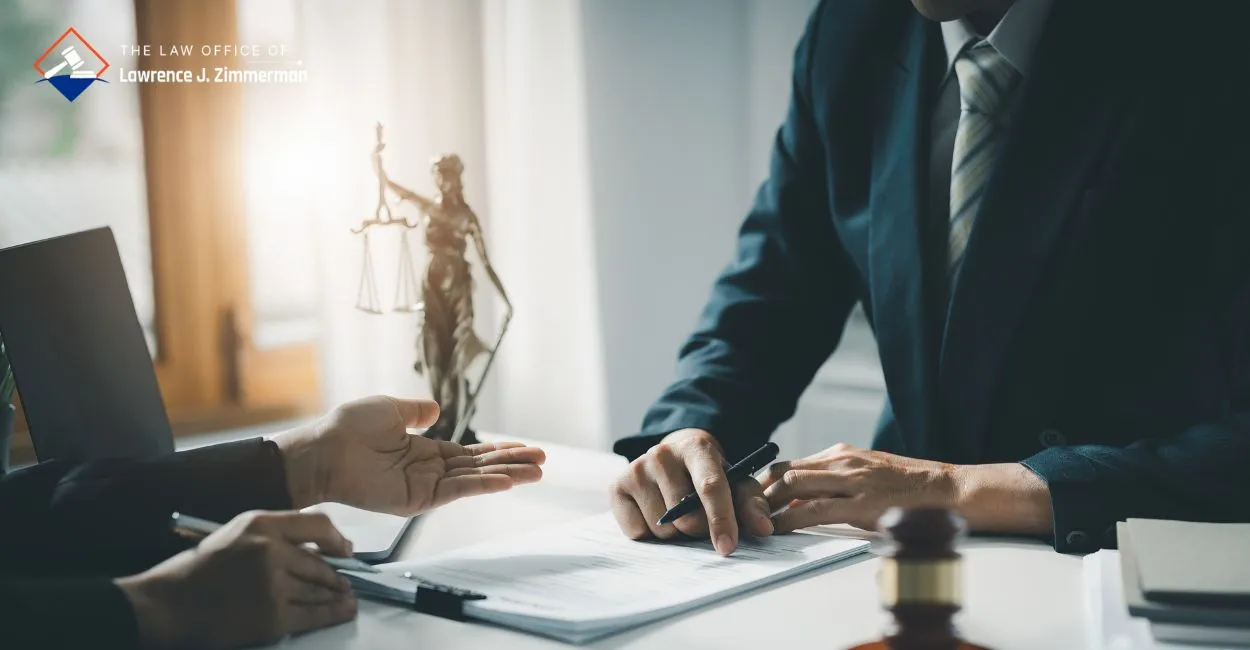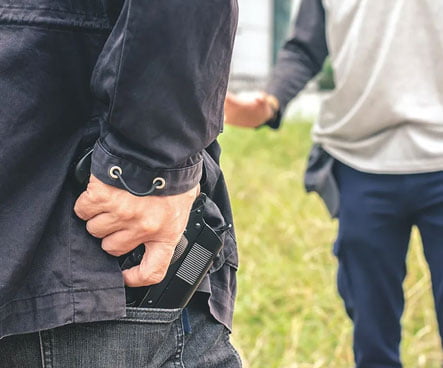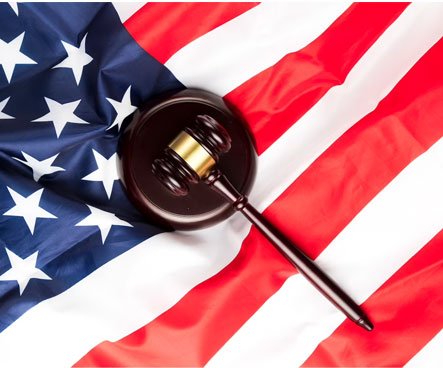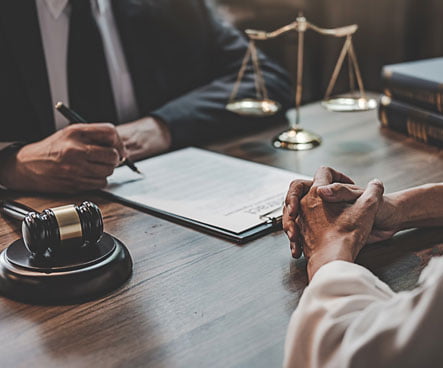Gwinnett County Criminal Defense Lawyer

Gwinnett County Criminal Defense Attorney
Being accused of a crime can be daunting and incredibly challenging to deal with alone. The legal implications of a conviction can have a long-lasting impact on numerous areas of your life. It is important to have a Gwinnett County criminal defense lawyer by your side to ensure there is someone advocating for you at every stage of the legal process. You don’t have to face the justice system alone.
Let The Law Office of Lawrence J. Zimmerman provide you with the support and guidance you need to reach the most favorable outcome in your case.
Choosing The Law Office of Lawrence J. Zimmerman
Our team at The Law Office of Lawrence J. Zimmerman is dedicated to providing our clients with aggressive and competent legal representation when they are facing criminal charges in the Gwinnett County area. We handle a variety of criminal cases, including the following:
- Drug Crimes
- Federal Crimes
- Property Crimes
- White Collar Crimes
- Sex Crimes
- Violent Crimes
- Firearm Crimes
- Cyber Crimes
With over 20 years of court experience on both the state and federal levels, our lead criminal defense attorney, Lawrence J. Zimmerman, has a successful track record and a great reputation amongst other lawyers. Allow us to use our knowledge of the legal system to help you achieve a positive outcome in your criminal case.
How Can a Criminal Defense Lawyer Help?
If you are facing criminal charges in Gwinnett, a criminal defense lawyer plays an important part in protecting and defending your rights. Ultimately, there are many ways they can help you. Your lawyer can thoroughly investigate your case by taking into account evidence, witness statements, and any related information to develop a strong defense. Ideally, the defense will identify potential weaknesses in the prosecution’s case.
If you do not understand what you have been charged with, your lawyer can explain the charges that the prosecution has alleged. They can also ensure you are aware of the possible consequences that come with a conviction and prepare you for each stage of the legal process. You can count on your lawyer to keep you informed on any developments or changes in your case so that you are never left in the dark.
Having a skilled lawyer can ensure you always have a strong ally—someone who will support and advocate for you at every stage.
The Criminal Justice Process in Georgia
The criminal justice process in Georgia can be complex and overwhelming for anyone who is not familiar with it. Here are the general stages of the criminal justice process:
- Investigation: During the investigation phase, law enforcement is building a case against you. They may be interviewing witnesses, collecting evidence, and obtaining warrants to search anything of yours that might contain evidence, including a warrant to collect your DNA. They may even want to speak to you, but it is recommended that you refuse.
- Arrest: If law enforcement is able to obtain an arrest warrant or believes they witnessed you committing a crime, they will arrest you. This does not mean you will be charged with anything; it just means there was enough probable cause for an arrest.
- Initial Appearance and Preliminary Hearing: A short time after the arrest, you will appear before a judge to hear the charges filed against you and your bond amount, if applicable. A preliminary hearing is held to determine if there is probable cause to go to trial. At this time, your defense team can respond and challenge the prosecution’s evidence.
- Grand Jury Indictment: Typically, a case is taken before a grand jury to determine, on a majority vote, whether or not there is probable cause to indict an individual on felony charges. Neither you nor your lawyer can be present for grand jury proceedings.
- Arraignment: If you are officially charged with a crime, you will proceed to your arraignment in the proper court. Here, you can enter a plea of guilty or not guilty. If you plead guilty to the charges, you will be sentenced.
- Discovery and Motions: If you plead not guilty, you will proceed to the discovery stage, where the prosecution and defense will exchange evidence. Your lawyer will have the opportunity to file pre-trial motions to potentially challenge the admissibility of certain evidence.
- Trial: You will have either a jury trial or a bench trial (judge only) to determine your guilt or innocence. Unlike the grand jury, a trial jury has to agree unanimously that the prosecution did or did not prove their case beyond a reasonable doubt. If the vote is split, you have a hung jury, which can lead to a mistrial.
The exact process that a criminal case follows depends on the specific case. Each case is different, and the process can vary depending on the circumstances of a case.
Understanding Your Rights in a Criminal Case
To ensure you are treated fairly during the legal process, you need to understand the rights you have in a criminal case. There are several rights you are guaranteed as a defendant, including:
- You have the right to remain silent and not incriminate yourself. You do not have to answer any questions or make a statement that may be used against you in court.
- You have a right to a speedy and fair trial before a jury of peers.
- You have the right to be secure against unreasonable search and seizure unless there is probable cause.
- You have the right to legal counsel during the trial process and in the stages leading up to the trial. You can hire your own attorney, or you can have a court-appointed attorney if you can’t afford to hire one.
- You have the right to confront and challenge the testimony of prosecution witnesses.
- You have a right to a presumption of innocence until you’re proven guilty by the prosecution. Prosecution has the burden of proof and must prove you are guilty beyond a reasonable doubt.
- You have the right to present witnesses and evidence to support your defense.
- You have the right to an appeal if you are found guilty.
Exercising your rights is arguably the most important part of protecting your freedom and your future. If you understand your rights and secure the representation of an experienced defense lawyer, you can make sure your rights are being upheld throughout the entire process.
FAQs
Q. What Is the Statute of Limitations for Felony Charges in Georgia?
A. In Georgia, the statute of limitations for felony charges depends on the specific felony committed and the circumstances of the case. Many felony offenses can be prosecuted up to four or seven years after the incident, but in some circumstances, there is no limit to the length of time the prosecution has to bring charges. Factors that can extend the statute of limitations include the presence of DNA evidence and victims under the age of 18.
Q. How Long Can a Felony Charge Be Pending in Georgia?
A. In Georgia, the specific amount of time a felony charge can be pending varies and depends on the circumstances surrounding the case. Felony cases go through various stages of the criminal justice process and can sometimes be met with delays. Depending on the offense, a felony case can potentially take anywhere between several months to years to be fully resolved. However, prosecutors must file formal charges within the statute of limitations for the given crime.
Q. Can I Represent Myself in a Criminal Case?
A. While you have every right to represent yourself in a criminal case, it is not advisable. Representing yourself can do more harm than good, and you could end up jeopardizing your entire case, especially if you are facing serious charges with considerable penalties. The safest thing to do is hire a defense lawyer who can properly handle your case. Your freedom depends on having a strong defense. Don’t take the risk of representing yourself.
Q. Can Felony Charges Be Dropped in Georgia?
A. Yes, felony charges can be dropped or dismissed in Georgia for a number of reasons. Potential reasons include issues of credibility with key witnesses, the prosecution having insufficient evidence, and errors in police procedure during the arrest or the investigation. Ultimately, the prosecution makes the decision to drop charges, though in some cases, the judge can make that decision. To have a good chance of having charges against you dropped, you need a criminal defense lawyer to argue your case.
Q. What Should I Do If I Am Suspected of a Crime?
A. If you are suspected of a crime, you should exercise your right to remain silent and obtain a lawyer immediately. If law enforcement wants to bring you in for questioning, have them contact your lawyer. In the event you are arrested, don’t answer any questions, don’t admit to anything, and don’t make a statement of any kind, even to profess your innocence. You can inform your lawyer of anything related to your case, and they can decide what to share with the police.
Your Gwinnett County Criminal Defense Lawyer
If you find yourself facing the possibility of a criminal conviction contact The Law Office of Lawrence J. Zimmerman. We understand that this can be an immensely stressful situation with so many uncertainties, and we’re here to help. We can be your advocate and your support team from the beginning to the very end.
Office Location
Meet With A Lawyer
Schedule A Consultation
Fields Marked With An “*” Are Required









